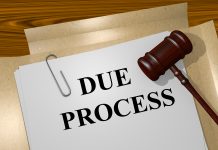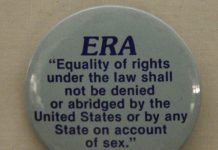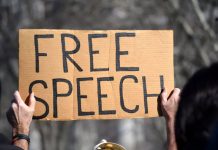The NSA isn’t just invading your privacy; it’s getting you to pay for it, too.
That’s right; $52.6 billion is what American taxpayers provide for this “service”. That’s roughly $574 per taxpayer every year, according to John Hopkins professor of applied economics Steven Hanke, and that’s provided the program does not continue to grow.
Hanke’s assessment is based off of documents leaked by whistleblower Edward Snowden known as the “Black Budget“. According to Hanke, the more than fifty billion dollars allotted the NSA outlined in the Black Budget is:
?more than double the size of the Department of Agriculture, more than triple the size of NASA; the list goes on…
Taxpayers’ funding of the NSA allows for collection of telephone metadata from all U.S. citizens, secret warrants for social media data and emails, as well as splitting submarine fiber optic internet cables.
And likely you’ve heard or read of several stories by now of the U.S. tapping a number of foreign leaders’ phones, including allies! Clearly the U.S. government believes it has the right to storm in and inspect anything it pleases like some kind of virtual Gestapo, and they get the American public to pay for it, like a bunch of patsies, while they’re at it. P.T. Barnum was right–America’s filled with chumps. What’s worse, perhaps, is that so was Mark Twain — there ain’t no convincing a fool he’s been tricked. I reckon even Huck Finn knew that.
According to the Black Budget, the NSA makes up around twenty percent of the overall intelligence community’s spending. That “community” is comprised of sixteen intelligence agencies employing 107, 035 people, among which are the CIA (receiving 27.9 percent of the budget), the NSA (receiving 20.5 percent of the budget), the National Reconnaissance Office (receiving 19.6 percent), as well as the National Geospatial-Intelligence Program (receiving 9.3), and the General Defense Intelligence Program (receiving 8.4 percent of the budget).
Within those five agencies (as well as eleven others), funding is broken down in the following manner according to the Black Budget: eight percent goes to “enhanced cyber security”; seven percent goes to “integrate counterintelligence”; thirty-three percent is allotted to “combat violent extremism”; thirteen percent goes toward “counter weapons proliferation”; and thirty-nine percent (the greatest portion) is granted to “provide strategic intelligence and warning”.
To break that down, the NSA makes up roughly twenty percent of the intelligence community budget ($52.6 billion). That translates into a little more than ten and three-quarter billion dollars a year just for the NSA. Of that ten and three-quarters billion, a little more than three-quarters of a billion dollars goes to “integrate counterintelligence” each year. More than three and a half billion goes to “combat violent extremism” each year. A little under one and a half billion goes toward “counter weapons proliferation” each year at the NSA, and a little under four and a quarter billion (again, the largest amount one should notice) is granted to “provide strategic intelligence and warning” — all at taxpayers’ expense.
These costs to taxpayers is what Prof. Hanke referred to in his blog for the Cato Institute as the NSA’s “rent”, going on to say that it is “too damn high”.
Whistleblower Edward Snowden no doubt felt it was important that the American people, as well as the rest of the world, become aware of this serious infringement on privacy and personal, civil rights. But the Director of National Intelligence James Clapper disagrees, citing “wars in Iraq and Afghanistan, the Arab Spring, the proliferation of weapons of mass destruction technology, and asymmetric threats in such areas as cyber-warfare” to the Washington Post. He went on to say that the publication of the Black Budget could potentially clue foreign intelligence agencies into the strengths (and more importantly) the weaknesses of U.S. operations.
But take heart, those who feel a grave injustice by the government when it comes to the NSA and the blooming of Big Brother. At the end of last month, the USA Freedom Act was introduced? jointly into the House and Senate by Congressman Jim Sensenbrener (R.-WI) and senator Patrick Leahy (D-VT). The bill would halt the NSA’s collection and storage of all Americans’ telephone metadata who are not under criminal investigation.
The bill also seeks to create a public advocate and liaison to speak for citizens during the Foreign Intelligence Surveillance Court, forcing the court to release any rulings that create “significant construction or interpretation of the law.” In simple terms, if major privacy and surveillance laws are going to be changed, the people deserve a seat and voice at the table.
Funny enough, however, both men helped bring about this situation in the first place. Sensenbrenner was the main author of the infamous USA Patriot Act in 2001 and each voted in favor of it. The USA Freedom Act would squash NSA surveillance of law-abiding Americans quickly, perhaps. Or, if one is cynical enough from studying enough history, one might question whether this savvy bill is simply a ploy to make Americans “think” or “believe” the surveillance has gone away only to keep it rolling full-steam ahead. Let us hope another whistleblower will bring that to light if it turns out to be the case.
Regardless, Sensenbrenner has stated,
Somewhere along the way, the balance between security and privacy was lost. It’s now time for the judiciary committees to again come together in a bipartisan fashion to ensure the law is properly interpreted, past abuses are not repeated and American liberties are protected.
A similar bill to the USA Freedom Act was introduced last summer by Justin Amash (R.-MI) called “Defund the NSA“, but was defeated after a heated debate and a House vote of 217-205. At least six representatives who voted against Amash’s bill have since vowed to vote for the USA Freedom Act. The Freedom Act is regarded as one of the strongest chances of blasting the NSA’s domestic spying out of the water. Amash has naturally given his support to the Freedom Act just as Sensenbrenner had offered support for Defund the NSA. Amash has been quoted as saying:
The days of unfettered spying on the American people are numbered.
Let us hope he is right, though with his track record, it certainly is difficult to trust in his integrity or sincerity.
Though the USA Freedom Act might hamper part of the NSA’s work if readers are willing to believe it will actually be curtailed with the passing of this bill, it is doubtful the new law would save Americans any money. You know how it is: they’ll never let you have the money back; they’ll simply find other uses for it. They’ll gobble it up like Thanksgiving dinner and belch away your protest.
Let the whistleblowers blow that Yankee Doodle Dandy.
Edited by SS





